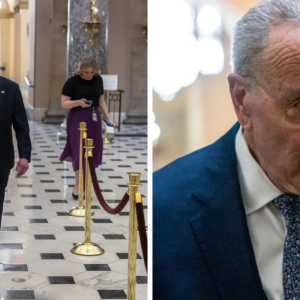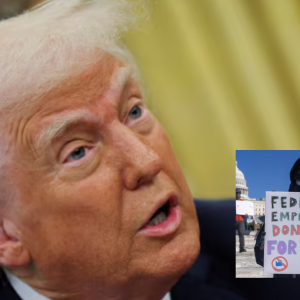Trump Orders Sanctions on Parties Involved in Lawsuits Against the White House
In a move that has sparked controversy and legal debates, former President Donald Trump has directed the U.S. Department of Justice to impose sanctions on the legal teams and parties involved in lawsuits challenging actions taken by the White House during his tenure. This unprecedented step marks another chapter in the ongoing legal and political battles that have followed Trump’s presidency, with the former president intensifying his strategy to fight back against what he deems as politically motivated legal attacks.

The lawsuits, which have been filed by various groups and individuals, primarily focus on alleged abuses of power, violations of constitutional rights, and issues concerning the handling of government policies. These legal actions have garnered significant attention, especially given the contentious nature of Trump’s presidency, which was marked by numerous investigations and accusations. However, Trump’s latest move is particularly significant because it involves direct retaliation against those who have initiated lawsuits against the White House.
By ordering the Department of Justice to target the legal teams and organizations involved in these lawsuits, Trump is sending a strong message to his critics. He has long criticized what he perceives as the weaponization of the legal system against him, and this action seems to be an extension of his efforts to fight back. According to sources close to Trump, the sanctions are a response to what he claims is an attempt to undermine the legitimacy of his administration’s actions and policies through legal challenges.
The White House has yet to release an official statement regarding Trump’s directive, but legal experts are already raising concerns about the potential implications of this move. Many are questioning whether such an order is consistent with the principles of justice and fairness, particularly when it involves the use of government power to retaliate against individuals and organizations that exercise their right to challenge government actions in court. Critics argue that this could set a dangerous precedent for future administrations, where legal reprisals could become commonplace.
Supporters of Trump, however, argue that the sanctions are a necessary step to defend the integrity of the presidency and protect future administrations from what they perceive as politically motivated attacks. They contend that legal challenges against the White House often have more to do with partisan politics than with genuine concerns over constitutional violations. By imposing sanctions, they argue, Trump is simply protecting the office of the president and ensuring that it is not subjected to unwarranted legal harassment.
This latest move by Trump follows a series of legal battles and investigations that have plagued his political career, both during and after his presidency. From the Mueller investigation into Russian interference in the 2016 election to the impeachment trials and the ongoing legal challenges related to his business dealings, Trump’s legal troubles have been a constant backdrop to his public life. His decision to go after the legal teams involved in lawsuits against the White House marks a new phase in his ongoing battle with the legal system.
The sanctions could also have significant consequences for the legal professionals involved in these cases. While it is unclear at this stage exactly what form the sanctions will take, legal experts predict that they could include financial penalties, disbarment, or other professional sanctions. These potential repercussions could have a chilling effect on the legal profession, particularly for those involved in high-profile cases against political figures or government institutions.
In addition to the potential legal ramifications, this move could also further polarize the political landscape in the United States. Trump’s supporters view his actions as a necessary defense of his presidency, while his critics see them as an attempt to suppress dissent and silence those who challenge his policies. This divide is likely to deepen as the legal battles continue, with both sides accusing the other of abusing the legal system for political gain.
As of now, it remains unclear how the Department of Justice will implement Trump’s directive and what specific actions will be taken against the parties involved in the lawsuits. However, one thing is certain: this latest development will only add fuel to the fire of the ongoing legal and political battles that continue to define Trump’s post-presidency.
In conclusion, President Trump’s order to impose sanctions on parties involved in lawsuits against the White House represents a bold and controversial move in the ongoing struggle between the executive branch and the legal system. While some view it as a necessary defense of the presidency, others see it as a dangerous attack on the integrity of the judicial process. As this situation develops, it will undoubtedly remain a topic of heated debate and legal scrutiny in the coming months.


